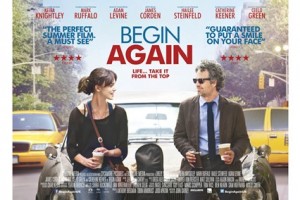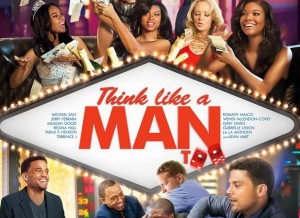The DUFF
Posted on February 19, 2015 at 5:43 pm
B| Lowest Recommended Age: | Middle School |
| MPAA Rating: | Rated PG-13 for crude and sexual material throughout, some language and teen partying |
| Profanity: | Some strong and crude language, one and a half f-words |
| Alcohol/ Drugs: | Teen drinking |
| Violence/ Scariness: | Bullying |
| Diversity Issues: | A theme of the movie |
| Date Released to Theaters: | February 20, 2015 |
| Date Released to DVD: | June 8, 2015 |
| Amazon.com ASIN: | B00WAEEG7M |

A haiku has 17 syllables. A limerick has five lines. An omelet is made from eggs. And a teen romantic comedy will have our characters visit the mall, a locker room, a classroom, and the school bathroom. There will be a trying-on-clothes montage, a makeover, a house party, and a big school dress-up dance. Nothing wrong with that. We’d be disappointed if they skipped any of these essentials. But because we see those same elements over and over, it can be tough to get it right. For every “Mean Girls” or “10 Things I Hate About You” there are dozens of duds like “Drive Me Crazy” or “Confessions of a Teenage Drama Queen.”
“The DUFF,” based on the book by Kody Keplinger, mostly gets it right, thanks to witty performances and great chemistry from the wonderful Mae Whitman and Robbie Amell (“The Flash”), though they are both too old to play teenagers.
Bianca Piper (Whitman) has two best friends , fashionista Jess (Skyler Samuels), and hacker/jock Casey (Bianca A. Santos), both gorgeous and talented and loyal. She does not mind too much that she is socially awkward, except when it comes to her inability to say more than two words (literally) to her soulful, acoustic guitar-playing crush, Toby (Nick Eversman). And then Wes, the handsome boy next door, who happens to be the star of the school football team (Amell), tells her that she is the DUFF (designated ugly fat friend), the accessible gateway between her hot friends and the rest of the world. She is hurt. She is humiliated. She is furious. She un-friends Jess and Casey in a funny encounter that involves almost a dozen different kinds of social media entanglements. With no one else to rely on, she decides to ask Wes for advice, in exchange for helping him with his chemistry test. Cue the trip to the mall with the makeover/trying on clothes montage.
Wes has a “strobe light” (off and on) relationship with the school’s uber-mean girl, named, of course, Madison (Bella Thorne, an actual teenager). Madison’s greatest goal in life is to become a reality TV star and she has her own DUFF/acolyte, constantly following her around to film her for her YouTube channel.
Seeing Wes with Bianca makes Madison determined to get him back in time for (of course) the big homecoming dance, where the homecoming king and queen will be announced. Her friend spots Bianca and Wes at the mall, and secretly films Bianca joking about her crush on Toby. Madison edits and uploads the humiliating video, which quickly spreads throughout the school.
Bianca is crushed.
But with the support of Wes, she decides to own it, deciding that the experience is like the acid bath that created Batman villain, The Joker. In a nice touch, even though they are hurt by Bianca’s accusations, Jess and Casey decide to help out behind the scenes by taking the video down. They really are her friends. But Bianca is so colossally embarrassed that what had seemed insurmountable humiliations like saying three or more words to Toby seem trivial. Soon, they have a date for dinner. And she has a beautiful new LBD to wear, courtesy of Wes.
The adults in the story are played by underused top talent (Allison Janney, Ken Jeong, Romany Malco), but the focus here is on the kids and they deliver their lines with a nice confidence and snap. It is not as endlessly quotable as “Mean Girls” but it feels fresh and resilient. There is even a suggestion that a makeover may not be right for Bianca, or, at least, that any makeover should leave her more like herself, in the world of high school movies, positively revolutionary. Whitman makes Bianca so thoroughly herself throughout that anyone would be glad to have her for a BFF.
Parents should know that this movie includes crude sexual references and some strong language, including one and a half f-words. There is a party with some teen drinking.
Family discussion: How does this compare to your school experience? Why did Bianca believe she was a DUFF, even though her friends really loved her?
If you like this, try: “Nick and Nora’s Infinite Playlist,” “Sydney White,” and “Mean Girls.”




